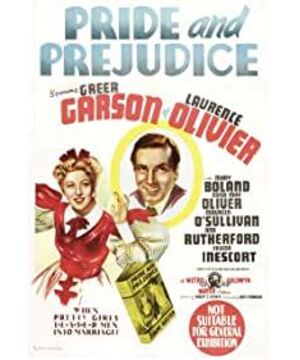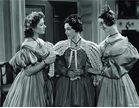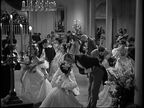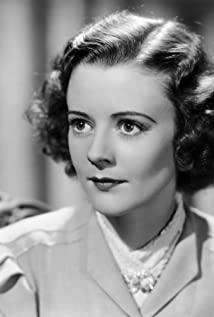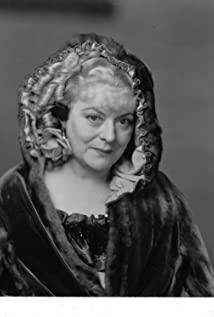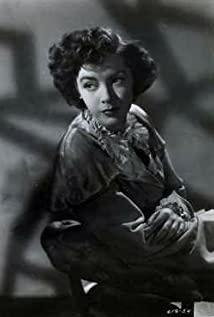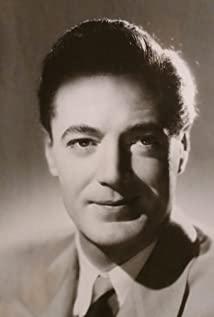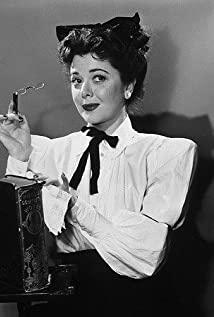know, "Pride and Prejudice" also has an Indian version, last week I was fortunate enough to see a good film. This reminds me of a blog post that has been on hold for a long time.
About two months ago, the American film "Pride and Prejudice" broadcast by Oriental Film Channel made up for the regret that it was finally cut off for no reason when it was first watched on CCTV-6, and I felt more and more that the film was perfect--- Perfect dubbing, perfect script, perfect character creation.
Jane Austen's novel "Pride and Prejudice" is one of the directors' most passionate works, and has been shot into movies and TV series many times. 1940, 1980, 1995, 2003, 2004, 2005 have all produced movies of the same name, and there are many versions of TV series (1938, 1952, 1967, 1980, 1995). The version I watched was shot in 1940. It interprets the original work in a classical way, and is the best film for the original work itself.
"Pride and Prejudice" stills (1995, 2005)
When it comes to scripts, you have to mention novels. This novel is one of the first foreign masterpieces that I came into contact with. Compared with "Notre Dame de Paris" and "Les Miserables", which I did not persevere when I was a child, "Pride and Prejudice" is quite attractive. As the famous American literary critic Edmund Wilson said, "There have been several revolutions of interest in the history of English literature, and the refurbishment of literary tastes has affected the reputation of almost all writers, but Shakespeare and Jane Austen have endured for a long time." Jane · Austin once said, "I only write about three or four families in a rural village."
But how can this work, which is good at telling ordinary family affairs, without bizarre plots and exciting scenes, be so favored by readers and directors?
Use irony, humorous
I believe that the humorous, humorous and interesting characteristics of novels are the key to attracting attention. In the process of performance, the author used a lot of irony, turning wisdom and stupidity into a more profound theme after reversing true and false. At the beginning, it tells the truth advocated by Mrs. Bennet:
IT is a truth universally acknowledged, that a single man in possession of a good fortune must be in want of a wife.
Under Mrs. Bennet’s stupid and funny words and deeds, Although this sentence became more and more "humorous", it proved to be the true truth at the end of the story, and the seemingly stupid Mrs. Bennet suddenly became wise and stupid.
Yingge was invited to visit Bentley’s house. Mrs. Bennet deliberately let him ride a horse instead of in a car. She also calculated that she hoped that a rain in bad weather would make Jane sick and unable to return home, and had the opportunity to get along with Bentley, and Elizabeth also had the opportunity to visit. Yingji and Darcy have more contacts. It's simply the calculation of the organs, killing two birds with one stone-who would dare to claim that such a woman is stupid? Elizabeth's prejudice against Darcy has improved significantly from visiting the manor. It seems to be contrary to the original character of this smart woman who admires love and is hostile to the arrogant and rich. The combination of her and Darcy is a compromise and neutralization of their unruly personality. , Always get together with friends, but also a clever pen of irony.
story plot
The stories seem to be the time, feelings and characters in ordinary life, which are connected in a harmonious order under the author's careful conception. The work mainly describes four marriages, with two as the main line and two as a supplement. Darcy and Elizabeth’s love and marriage are the main line, based on their arrogance and prejudice. After many twists and turns, they put down their arrogance and prejudice gradually disappeared, and the lovers eventually became married. The marriage of Elizabeth's sister Ji Ying and Darcy's friend Bentley is another plot clue. The two were obstructed by many parties, entangled with the first clue, and influenced each other to develop together. Both of these marriages reflect in a positive way what the author wants to express, that marriage must be based on love. But Charlotte's marriage with Collins and Lydia's marriage with Wickham are negative examples, and also serve as a dark line with the main line, which promotes a richer and more tortuous development of the plot. Without Lydia and Wickham's elopement coincided with Darcy's relief, perhaps a good marriage would not have been achieved.
The vividness of the plot of the novel is also reflected in the coincidence and misunderstanding of the plot design, accidents and sudden changes, slander and slander, etc. These careful arrangements make the plot of the novel more complicated, more vivid, and full of artistic appeal. For example, Darcy's character always makes his tone "arrogant", and Lizzy's prejudice arises from this, and the wonderful "tongue war" of the happy enemy kicked off; Elizabeth's prejudice made her slander the Darcy incident in Wakeham. In the middle of standing a biased position, the misunderstanding deepened; Charlotte’s marriage with Collins made Lizzy and Darcy meet again and changed their views. Unexpectedly, the plot of Darcy’s proposal changed suddenly, and Elizabeth flatly refused. Karma is about to be missed, Darcy selflessly resolves Lydia's elopement with Wickham, opening a beautiful outlet for the seemingly end of the story.
After
paying attention to the dialogue , it is not difficult to find that the scene introduction of the novel, the link between the plot, the intensification of contradictions and the development of the ice are mostly completed through dialogue. Dialogue has become the most important factor that promotes the development of the plot.
At the beginning of the novel, Bingley can already learn about him from the dialogue between the Bennets before he even appears.
"Why, my dear, you must know, Mrs. Long says that Netherfield is taken by a young man of large fortune from the north of England; that he came down on Monday in a chaise and four to see the place, and was so much delighted with it that he agreed with Mr. Morris immediately; that he is to take possession before Michaelmas, and some of his servants are to be in the house by the end of next week."
"What is his name?"
"Bingley ."
"Is he married or single?"
"Oh! single, my dear, to be sure! A single man of large fortune; four or five thousand a year. What a fine thing for our girls!"
Then Mrs. Bennet The plan to promote her daughter began to be prepared in mind. My poor nerves was once popular in Mercury's blog post.
(...So I decided to tell you that I don't want to dance Scottish dance at all-now you are a good one, just despise me) A short dialogue, a formal novel that clearly describes the protagonist’s distinctive personality and portrays the character’s personality. One of the colorful points. figure
Elizabeth is the author's most successful and her favorite character. She is sensible, lively, witty, and good at watching people coldly and seeing through their minds. Compared with her sisters, she is the smartest, lively and generous. She has human dignity and advocates spiritual superiority. She is the most rational in the world full of fools. Elizabeth seems to be the shadow of the author. Her eyes are like a camera traveling through the scene. Mrs. Bennet’s impropriety and ugliness abound, Miss Bentley’s hypocritical manner, Collins’s ridiculous stupidity, and even Yingji’s and Bentley’s eyebrows can’t escape. Her eyes. The insights and opinions expressed by her are often included in the book, which is also the author's use of her to express his intentions and opinions. After her preconceived subjective color glasses, Darcy's arrogance is magnified, and prejudice arises at the historic moment. Greer Garson's performance is just right. Elizabeth's self, funny, arrogant, and contradictory all behave appropriately. In addition to her age, she seems to be older than Ingilio, she is the perfect image of Lizzy. Darcy is played by Laurence Olivier, a gentleman, arrogant and affectionate. There are also comments that Olivier's performance is too dramatic and a bit exaggerated. Although not as perfect as Lizzy, this version of Darcy has also shown its unique introverted and arrogant temperament. Olivier once overwhelmed Fei Wenli. Perhaps his personal charm is also one of the factors that make the role more attractive.
"Pride and Prejudice" (1940) stills Laurence Olivier and Greer Garson
For Elizabeth, I personally have a preference, even surpassing Scarlett, but she "behaves" a lot of marriages, which once made me puzzled. Is it because there is no market for smart and independent women? Is it because the character compromises the rules of social marriage, or is it true that women become stupid when they encounter love? In his interactions with Wickham, the last one was obviously verified, and again it highlighted that lizzy was more concerned about true love. In fact, lizzy, who seems to be a loyal follower of love, can hardly escape the vicious circle of money marriage. The author has arranged for Darcy to have a handsome appearance and a noble character. The most important thing is that no matter how ups and downs the plot development between him and Elizabeth, one thing is the fact that he is a gentleman with an annual salary of 10,000 pounds. The royal family has close ties, has its own manor, family property, and fields. In short, Darcy is very, very rich. The turning point in Elizabeth's change of attitude towards Darcy was after she visited Darcy's manor. It is undeniable that the title of the hostess of Pemberly Manor is an unavoidable temptation. As a result, the reasons for the prejudice also surfaced, because Darcy's arrogance is actually a reflection of the difference in status, and it is also a barrier for them to forge a happy marriage. After several twists and turns, the contest between arrogance and prejudice, the story of lizzy and Darcy ended with a happy marriage. This also reflects the author's own view of marriage: marriage for property, money and status is wrong; marriage does not consider the above. The factor is also stupid. So in the author's opinion, lizzy is not stupid, but wiser and smarter.
The connotation is of
course, if you think that just having these appearances can be passed on for a hundred years, and the classics will not decline, then you are completely wrong. Jane Austen unfolds the story from a female perspective through Elizabeth's eyes, which in itself not only means subversion of the traditional male narrative, but also implies the promotion of non-feminist consciousness. The annual salary figures that appear repeatedly in the works, the character compromise in a happy marriage, the sacrifice of love in an unfortunate marriage, etc., all reflect the role of property, status, ideas, personality and other factors in marriage. Of course, as the Elizabeth sisters advocate There are not many people whose true love is supreme, naked material transactions and unbearable family marriages became popular at the time.
Dubbed film
The 1940 version of the movie is very loyal to the original, and has also become the best translated and dubbed version. The dubbing was introduced by Shanghai Translation Studio in 1980. The translation was called "Ping Kai Que Xuan" (1940), which was also one of the classic dubbing works that Shanghai Translation Studio withdrew during the golden age. The language of the translation is concise and funny, and the use of many modal particles and idioms is very authentic. This is also the credit for the re-creation of the early workers in our country. The title of the Indian version of
Bride & Prejudice
has a small change, Bride & Prejudice (2004). Although it is based on Jane Austen's novel, the film has been modified as appropriate. For example, the Indian version of the conflict between the male and female protagonists, in addition to economics, status, and cultural differences between nations, countries, and regions have caused misunderstandings and prejudices; the typical feature of Indian films is beautiful and dynamic singing and dancing, and the film incorporates the singing and dancing scenes to express Large-scale scenes and psychological activities have also become the masterpieces of the Hollywoodization of Indian musicals; the background era of the film has moved to the modern era, and modern elements have been properly applied, so the United States, India, Britain and other scenes are changed and the airplane is used as a modern transportation tool. They all appeared on stage as scenes; the ending was changed to Wickham’s unsuccessful deception of Narida’s younger sister by the director, and the marriage of Narida to a friend of the lawyer (the priest) was at least materially related to Collins’ Love, although she doesn’t love him; but the most outstanding feature is the song and dance performance in the film. The Indian song is so dynamic that people can’t help but want to dance with the actors. If you don’t believe me, you can try it~
a scene from the wedding. Singing and dancing performances, I believe friends who have seen the movie must have a deep memory~
View more about Pride and Prejudice reviews


